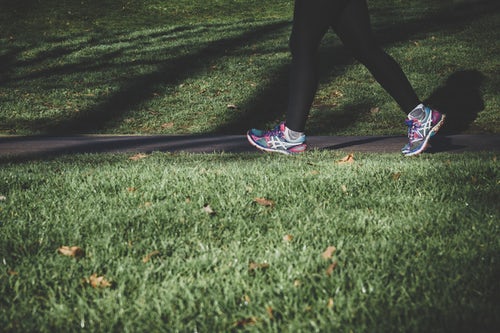Seniors and Life Sports III – 6 Benefits of Walking
Why am I so big on independence? It is, I believe, the first thing we strive for and desperately hold on to from cradle to grave. Inevitably, we all have to make adjustments, be it reading glasses, some other aid or medication.
It has been my experience that people who are less active have more problems later in life. That doesn’t mean an active person is not immune to cancer, arthritis, diabetes or other problem. We’re all at risk, it’s part of the human condition. There’s just too much data supporting the physical and emotional benefits of an active lifestyle. That’s why I embarked on a series looking at a number of lifetime sports and their subsequent benefits. My first two articles dealt with “group sports.” Today, I will be looking at an individual sport, walking, and a few of its inherent benefits.
- Improves balance – Harvard Health cites that “walking helps build lower-body strength, an important element of good balance.”
- Reduces arthritic pain – Robert Preidt, writing in HealthDay Reporter, cites a study by Dorothy Dunlop, “a professor of preventive medicine at Northwestern University’s Feinberg School of Medicine in Chicago,” that monitored people suffering from osteoarthritis and how they benefited from a regular exercise program. The study found that those engaged in moderate programs like walking were, over time, able to more easily walk safely across the street and perform daily activities better.
- Boosts Immune System – Markham Heid, cites in Time, a study conducted by, “David Nieman, a professor of public health and director of the Human Performance Lab at Appalachian State University.” Nieman’s work “found that 30 minutes of brisk walking increased the circulation of natural killer cells, white blood cells and other immune system warriors.” He further concluded that optimal immune function occurred after moderate daily exercising.
- Weight management – Katherine Zeratsky, a dietitian with the Mayo Clinic, shares that brisk walking helps you burn calories, but, ideally, you will probably need to make some changes in your diet as well.
- Improves cardiovascular health – John D. Omura, MD, and other associates writing for the Center for Disease Control (CDC) stated, “Cardiovascular disease (CVD) is the leading cause of death in the United States, and increasing physical activity can help prevent and manage disease. Walking is an easy way for most adults to be more active and may help people at risk for CVD to avoid inactivity, increase their physical activity levels, and improve their cardiovascular health.”
- Increases energy and stamina – Writing for Medical News Today, Jenna Fletcher notes studies showing that routine exercise, particularly walking, has been shown to produce increases in energy and endurance.
By now you know that I have not listed every benefit walking can afford you. I’ve left out several including improved mood, improved bone strength and more. Walking is ideal for seniors, its low cost and requires no training. A gym membership is not required, and you can do it by yourself or with friends. It’s an easy way to be healthier and can lead to increased levels of independence. All you have to do is one step at a time and at your own pace.


Recent Comments